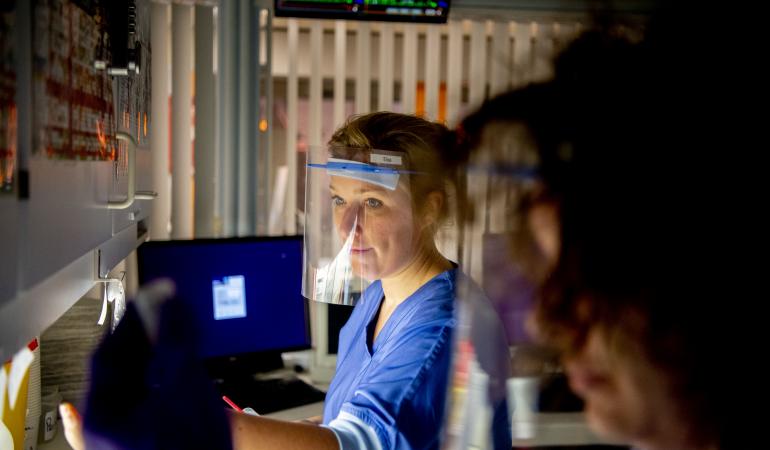
People who occasionally or regularly work at night are 37% more likely to test positive for coronavirus than people who only work during the daytime. This is one of the conclusions of a study by the National Institute for Public Health and the Environment (RIVM) into the first year of the coronavirus pandemic in the north of the Netherlands. Differences between people who work at night and those who only work during the daytime, such as differences in profession, working from home, and contacts during work, were taken into account before reaching this conclusion. During the study period, there were no vaccines available yet and people were getting infected with earlier variants of coronavirus than the Delta and Omicron variants.
It has been known for some time that working at night disrupts one’s day-night rhythm. This may explain why people who work at night have a greater risk of developing cardiovascular disease, diabetes and other diseases. There also appears to be a relationship between working at night and infectious diseases. Recently, research groups all over the world found that people working at night are more likely to get infected with coronavirus. RIVM did a study to investigate this for the north of the Netherlands. The findings of this study are in line with those of earlier studies into the relationship between working at night and infectious diseases.
Based on this study, further research will need to be done to determine which measures can help to prevent infections in this particular group of people. It is also important to do further research into the relationship between working at night and infectious diseases, as new virus variants and new epidemics may emerge.
About the study
For this study, RIVM used data from the Lifelines COVID-19 survey. In the early stages of the pandemic, this survey was regularly sent to a large group of people living in the north of the Netherlands. In the survey, people were asked if they had tested positive for coronavirus. The researchers compared results from the survey for 2,285 people who worked at night and 23,766 people who only worked during the daytime only.
The study was done on behalf of the Dutch Ministry of Social Affairs and Employment and has been published in the scientific journal Chronobiology International.